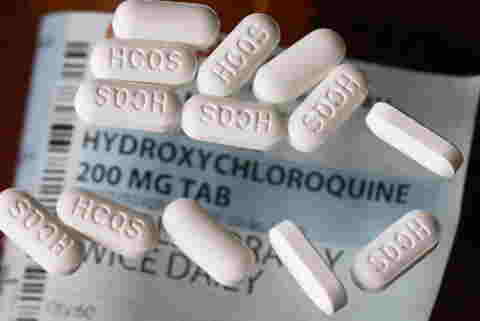“““““““““““““““““““““““““““““““““
We write with grave concern that too
many are being distracted by the ardent advocacy of our Yale colleague, Dr.
Harvey Risch, to promote the assertion that hydroxychloroquine (HCQ) when given
with antibiotics is effective in treating COVID-19, in particular as an early
therapeutic intervention for the disease. As his colleagues, we defend the
right of Dr. Risch, a respected cancer epidemiologist, to voice his opinions. But
he is not an expert in infectious disease epidemiology and he has not been
swayed by the body of scientific evidence from rigorously conducted clinical
trials, which refute the plausibility of his belief and arguments.
Over the last few weeks, all of us
have spent considerable time explaining the evidence behind HCQ research, as it
applies to early and late stage COVID-19 patients to the scientific community
and general public, and now are compelled to detail the evidence in this open
letter.
We are seriously alarmed for the
safety of patients and the coherence and effectiveness of our national COVID-19
emergency response when misinformation about HCQ is spread and when rigorous
scientific evidence and consensus produced by the community of expert
researchers in infectious diseases, federal agencies and national and global
health organizations are not heeded. Let us be clear: we are unanimous in our
desire to see the development of therapies to treat COVID-19 and to prevent the
transmission or acquisition of SARS-CoV-2. If HCQ was shown to be effective,
even among subgroups of patients with COVID-19 in ongoing high quality trials,
we would join our colleagues in promoting access to it for all who need it.
However, the evidence thus far has been unambiguous in refuting the premise
that HCQ is a potentially effective early therapy for COVID-19.
HCQ is used for the treatment of
rheumatological diseases, such as lupus and rheumatoid arthritis. However, this
does not ensure that the drug will be safe in patients with COVID-19 or in
widespread use to treat early illness. In fact, rigorously-conducted clinical
trials have found that HCQ is not effective as an early prophylactic therapy in
preventing illness due to COVID-19 in people exposed to the virus.
Furthermore, HCQ, alone or together
with the antibiotic, azithromycin, has not been shown to be effective in
improving the clinical status of patients with COVID-19. Moreover, clinical
trials have found that treatment with HCQ may be associated with increased risk
of adverse reactions. Taken together, the scientific evidence does not support
the widespread use of this drug, alone or in combination with an antibiotic, as
advocated by Dr. Risch and others, unless rigorous evidence from clinical
trials demonstrates otherwise.
Finally, we point to the recent
memorandum from the US Food and Drug Administration revoking the Emergency Use
Authorization for HCQ that has assembled the data on the drug as of June 2020
(Food and Drug Administration Memorandum Explaining Basis for Revocation of
Emergency Use Authorization for Emergency Use of Chloroquine Phosphate and
Hydroxychloroquine Sulfate). The Infectious Diseases Society of America now advises
against the drug alone or in combination with azithromycin in the setting of
COVID-19 except in the context of ongoing clinical studies. If these trials do
show a clinical benefit for HCQ, we would revise our views on its use in the
management of COVID-19.
The disproportionate focus on
treatment with HCQ, in addition to the lack of a strong scientific rationale
for its use and the risk of its potentially harmful effects, has major
opportunity costs.
In a recent analysis of COVID-19 clinical trials, one in every six studies of
treatments against SARSCoV-2 was designed to study HCQ or chloroquine. We
understand the desperation of many to see an effective treatment for COVID-19
emerge that will stop the pandemic in its tracks or slow its relentless spread
in the US. But investing our resources in HCQ after multiple studies have not
shown it to be effective for COVID-19 has serious implications for more than
just individual patients.
The continuing advocacy on behalf of
HCQ distracts us from advancing the science on COVID-19 and seeking more
effective interventions in a time when more than 1000 people are dying per day
of this disease. There are multiple approaches to expedite the evaluation and approval of drugs
for serious and life-threatening diseases in the US that have existed for
decades now, but they all still rely on data from rigorous, well-conducted
clinical trials to guide us. In addition, this ongoing promotion of HCQ has
global implications as well, as many countries in the global South only have
access to HCQ and use of HCQ is still common in this setting despite the lack
of evidence and potential risks.
It is critical that we follow the
science and where the evidence leads us on a quest to treat and prevent
COVID-19. In this climate, it’s important to rely on the data above all else
when making clinical or regulatory decisions.
Stay informed with MS news and information - Sign-up here
For MS patients, caregivers or clinicians, Care to chat about MS? Join Our online COMMUNITY CHAT




